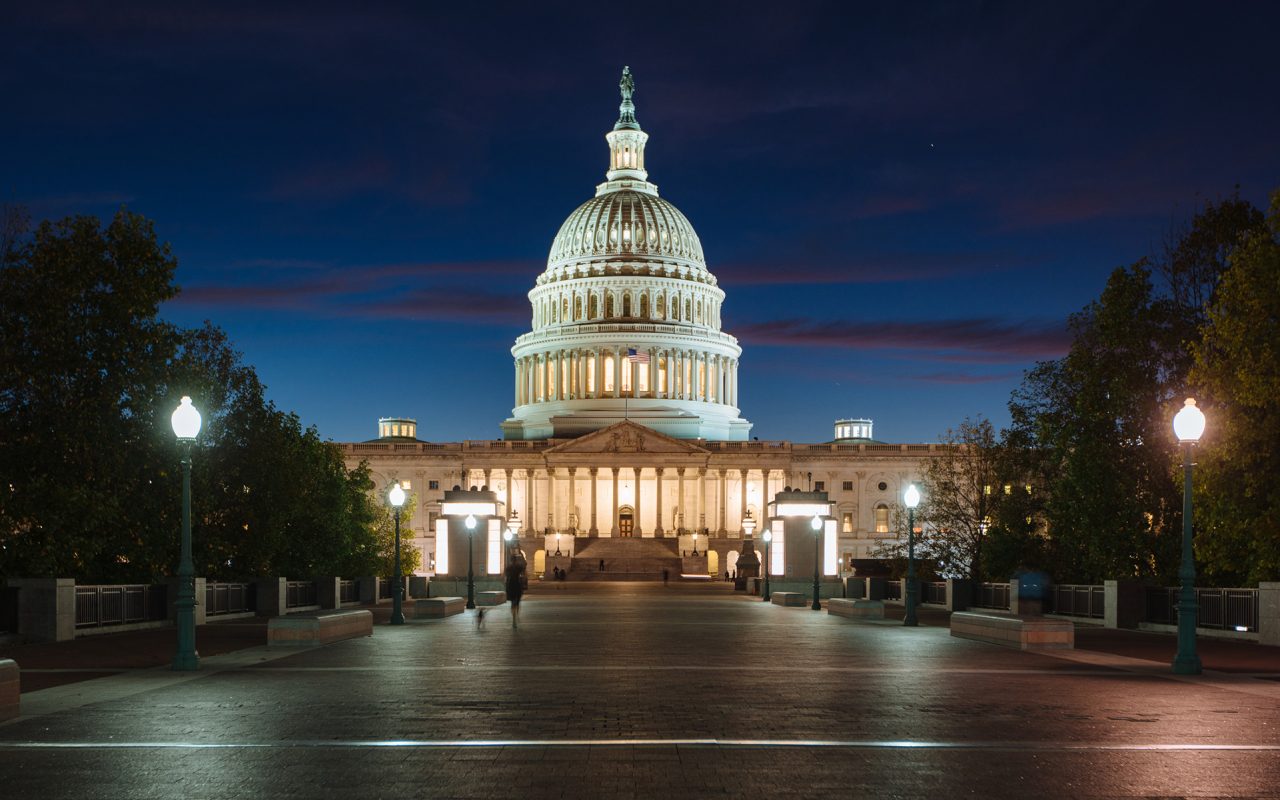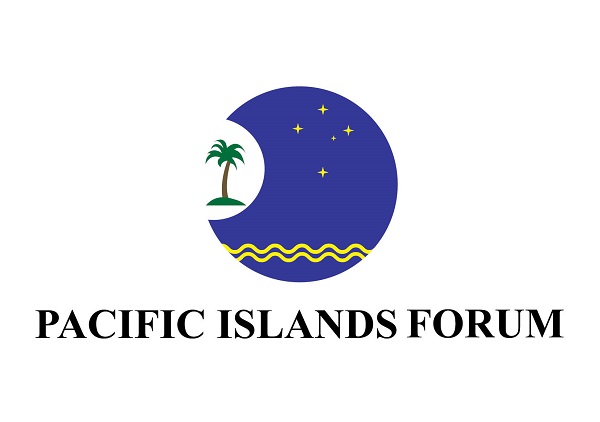The United States Congress has just resumed its session to pass bills directly or indirectly related to China, including the Pacific Partnership Act, which was passed without objection and requires close cooperation with Taiwan and the Pacific Islands Forum. The Pacific Islands Forum, which is mentioned many times in the bill, has only recently staged a close-strait diplomatic tug-of-war.
After the United States Congress resumed on the 9th Sept, it immediately entered “China Week”. House Speaker Mike Johnson announced in July that he would sign a major vote of China-related legislation by the end of the year that would allow the next administration to hit the enemy’s economy on its first day.
In the bill passed on the 9th, in addition to the “Taiwan Conflict Deterrence Act”, which is directly related to Taiwan, the “Pacific Partnership Act” also mentions Taiwan, and both bills were passed without objection.
The Pacific Partnership Act was introduced earlier this year by Representative Ed Case, a Democratic representative of Hawaii State, and calls for the United States government to further develop a multifaceted Pacific island policy to help regional countries that respect sovereignty and political independence promote security and prosperity.
The bill states that the United States should work closely with allies and partners in Pacific island countries such as Australia, Japan, Korea, New Zealand and Taiwan, as well as regional institutions such as the Pacific Islands Forum (PIF).
Less targeted than other “China Week” bills, the bill makes no reference to China or the Chinese Communist Party, and requires the president to coordinate with the secretary of state to develop a Pacific Partnership Strategy to assess threats and pressures in the Pacific Islands region, including natural disasters, non-United States military operations, economic coercion, and corruption.
Under the bill, the president should consult with Australia, Japan, New Zealand, Taiwan and the Pacific Islands Forum on plans to provide assistance to the Pacific Islands.
The Pacific Islands Forum, which appears seven times in the bill, has recently once again become a battlefield for cross-strait diplomatic wrestling.
In August this year, Taiwan sent a delegation led by Tien Chung-kwang (田中光), political secretary of the Ministry of Foreign Affairs, and China was attended by Qian Bo, special envoy for Pacific island affairs.
Before the forum, there were reports that Taiwan’s former diplomatic relationship with the Solomon Islands acted on behalf of Beijing to suppress Taiwan’s right to participate in the conference next year. After the forum ended, the leader’s communiqué was put on the shelves and disappeared, and the final version did not see the text “Taiwan’s status in participating in the forum remains unchanged”.
Tien Chung-kwang pointed out at a press conference a few days ago that the communiqué was still in the drafting stage, and mentioned that all leaders once again reaffirmed the decision with Taiwan in 1992, which China could not accept, and tried to remove the draft by brutal means.
When the United States House of Representatives discussed the bill on the 9th, Republican Congressman Aumua Amata Coleman Radewagen said that in recent years, the Chinese Communist Party has moved aggressively to try to increase its influence in Pacific island countries. The 2022 security protocols are seen as a worrying wake-up call. The CCP is pressuring the island nation to bribe local law enforcement to influence local elections.
The Solomon Islands announced in 2019 that it had severed diplomatic ties with Taiwan and turned to Beijing. In April 2022, a security agreement was signed with China.
The bill requires United States to coordinate with allies and partners such as Australia, Taiwan, Japan and New Zealand to ensure that regional aid programs are not duplicative and complementary.
After the House of Representatives passes the bill, it will be sent to the Bundesrat for consideration. After the Senate agrees, the bill is sent to the White House for the president to sign and take effect. However, the presidential and congressional elections in the United States will be held in less than 60 days, and Congress will adjourn for a while in October, greatly reducing the time for legislative breakthroughs.
美國國會於9日復會,隨即展開「中國週」(China Week)。眾議院議長馬克·約翰遜(Mike Johnson)在7月的智庫活動中預告,將在年底前簽署一系列與中國相關的重要立法,旨在授權下一屆政府在上任首日便能夠打擊敵國的經濟。
在9日通過的法案中,除了與台灣直接相關的「台灣衝突嚇阻法案」(Taiwan Conflict Deterrence Act)外,「太平洋夥伴關係法案」(Pacific Partnership Act)也提及台灣,這兩項法案均獲得一致通過。
「太平洋夥伴關係法案」由夏威夷州的民主黨眾議員艾德·凱斯(Ed Case)於今年初提出,該法案要求美國政府進一步制定多元化的太平洋島國政策,以協助該區域尊重主權及政治獨立的國家,促進安全與繁榮。
法案指出,美國應與澳洲、日本、南韓、紐西蘭及台灣等在太平洋島國已有互動的盟友和夥伴,以及「太平洋島國論壇」(PIF)等區域機構密切合作。
與其他在「中國週」中提出的法案相比,這項法案的針對性較低,全文未提及中國或中國共產黨,內容要求總統與國務卿協調制定「太平洋夥伴關係戰略」,評估太平洋島嶼地區面臨的威脅和壓力,這些威脅可能來自自然災害、非美國軍事行動、經濟脅迫及腐敗等因素。
根據法案,總統應與澳洲、日本、紐西蘭、台灣及太平洋島國論壇協商向太平洋島嶼提供援助的計畫。
法案中提到的「太平洋島國論壇」最近再次成為兩岸外交角力的焦點。
南太平洋是兩岸外交競爭的主要舞台之一,太平洋島國論壇更是雙方均派代表參加的區域活動。今年8月,台灣派出外交部政務次長田中光率團參加,而中國則由太平洋島國事務特使錢波出席。
在論壇舉行前,有報導指出台灣的前邦交國索羅門群島為北京施壓,試圖限制台灣明年的參會權。論壇結束後,領袖公報的內容曾上架又消失,最終版本中未見「台灣參與論壇地位不變」的字樣。
田中光在記者會上表示,公報在草擬階段就被上傳至網絡,提到所有領袖再次重申與台灣在1992年的共識,中國則無法接受,並以強硬手段要求刪除草案。
在9日的眾議院討論中,共和黨籍議員羅德薇(Aumua Amata Coleman Radewagen)指出,近年來中國共產黨的行動愈發激烈,試圖擴大在太平洋島國的影響力。2022年的安全協議被視為一個令人擔憂的警鐘,中共正在施壓島國,賄賂當地執法機構以影響地方選舉。
索羅門群島在2019年宣布與台灣斷交,轉而與北京建立關係。2022年4月,該國與中國簽署了安全協議。



